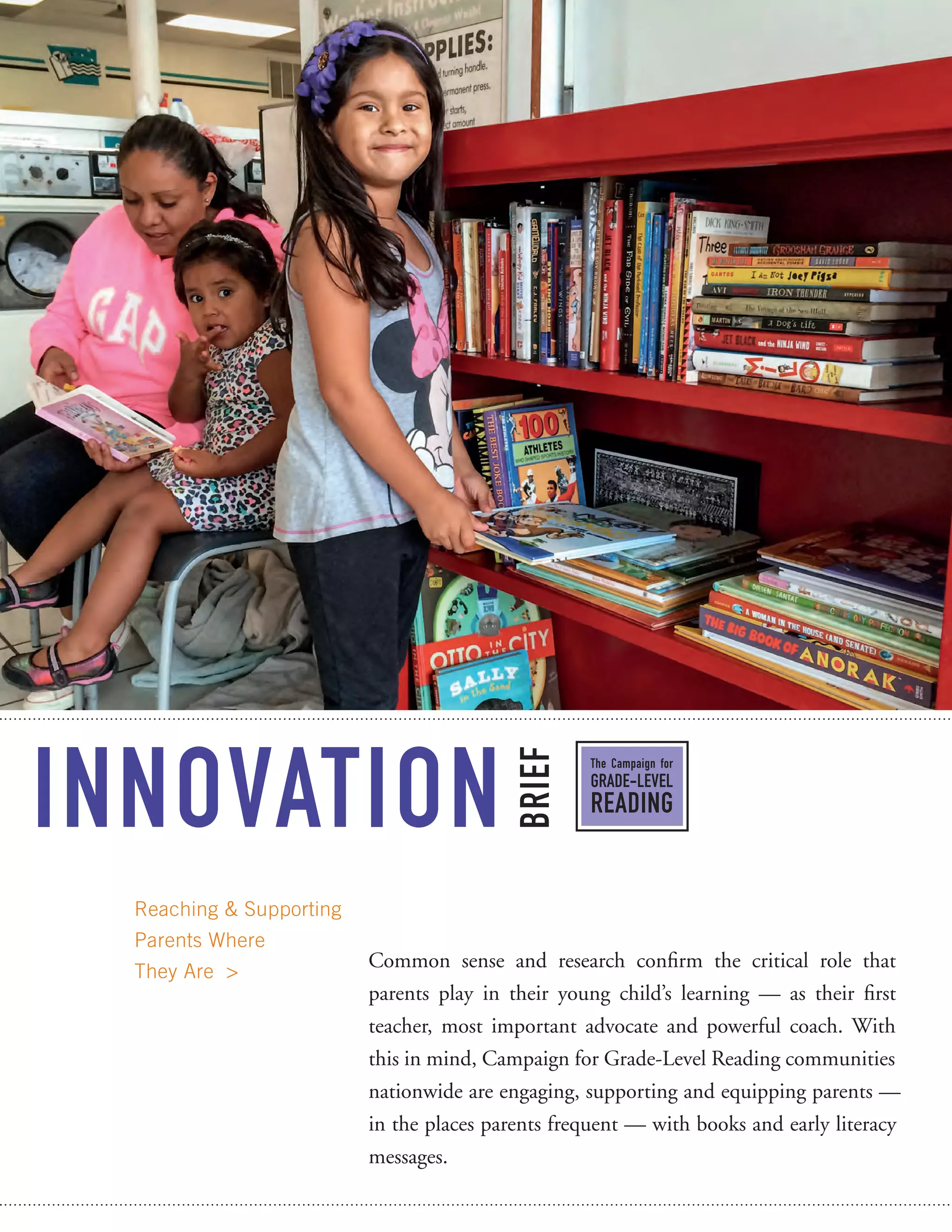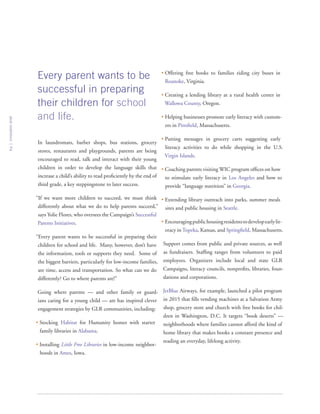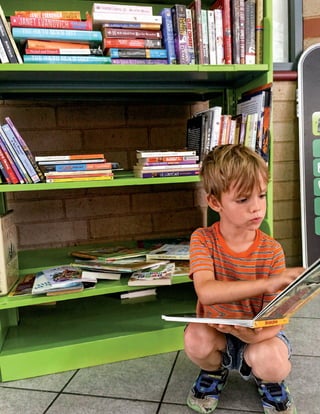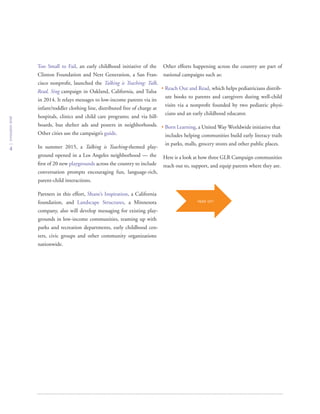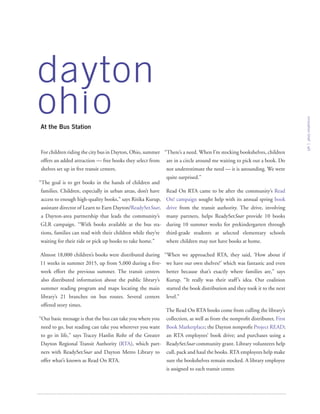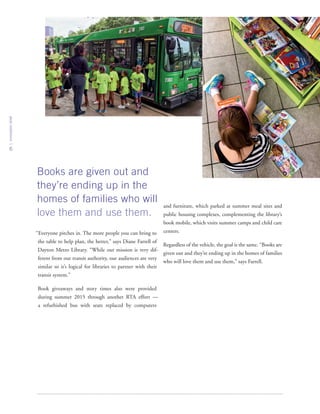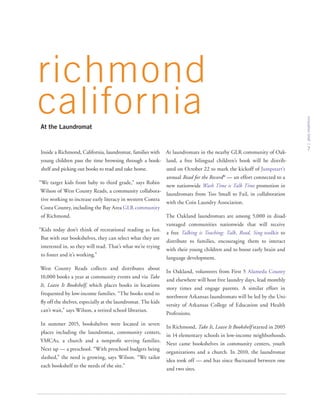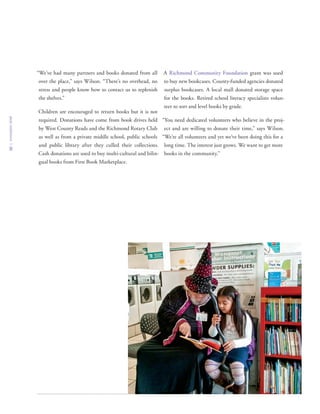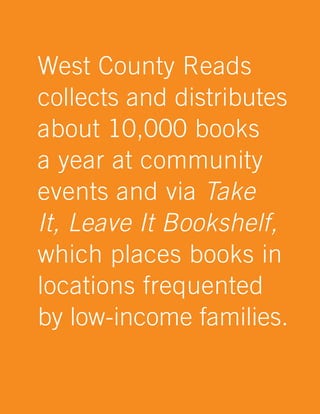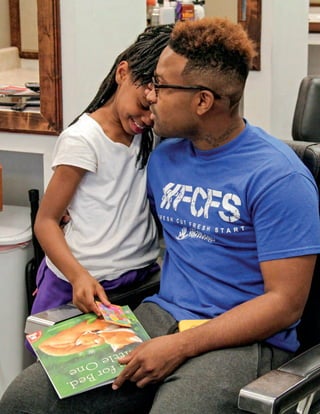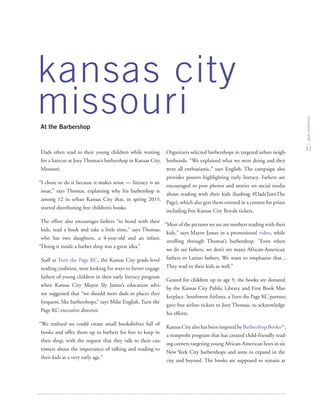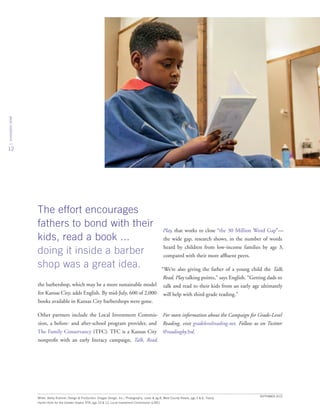The document discusses efforts by various communities nationwide to promote early childhood literacy. It describes initiatives that place books and literacy materials in locations where parents spend time, such as laundromats, barbershops, bus stations and playgrounds. The goal is to make books easily accessible to parents and encourage reading with young children. Several specific programs are highlighted, including ones in Dayton, Ohio where books are available at bus stations, in Richmond, California where bookshelves are located in laundromats, and in Kansas City, Missouri where books are distributed in barbershops to engage fathers. The initiatives aim to develop language skills and a love of reading to help children become proficient readers by third grade.
